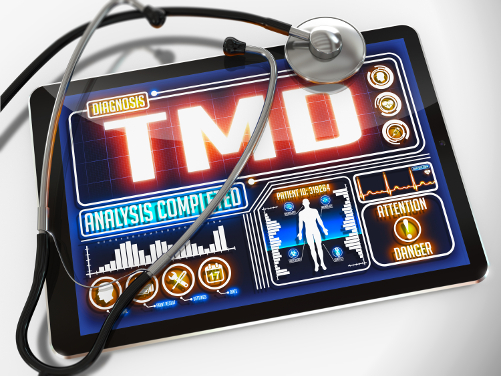5 Surprising Causes of TMJ Disorder
-

The temporomandibular joint (TMJ) is the hinge that connects your jawbone and skull. According to the American Dental Association, it is one of the most complex joints in the body, involving muscles, ligaments and bones in its function. Any condition that affects the function of this complex joint is referred to as a TMJ disorder.
TMJ disorder is a relatively common dental condition that can cause extreme pain. In many cases, the exact cause of TMJ disorder is unknown, but it can often be the result of bite abnormalities (malocclusion). Improper bite function can stress the muscles and ligaments of the TMJ, essentially repositioning them and causing a problem. Other relatively common causes associated with TMJ disorder include teeth grinding and clenching, arthritis and dislocation, physical activity or trauma, and even genetic predispositions.
Beyond these relatively common causes of TMJ disorder, there are some other established causes that may surprise you. Here are five potential causes of TMJ Disorder you might find surprising:
-
1. Academic Stress

Academic stress has been linked with a number of mental and physical issues affecting students everywhere. Lack of sleep and poor dietary habits can be contributing factors to the stress. This extreme stress can cause teeth grinding (bruxing) to the extent that wear and tear is accelerated. This can lead to a number of dental concerns, including TMJ disorder.
-
2. Drug Use

The perils associated with frequent drug use are many, some more serious than others. But the use of amphetamines like cocaine is known to drastically increase parafunctional activity such as the clenching and grinding of teeth. This can stress the muscles and ligaments controlling TMJ functionality in addition to causing wear and tear of the teeth.
In the grand scheme of drug addiction, TMJ disorder might seem relatively minor. However, the condition is nonetheless painful and can cause lasting damage.
-
3. Poor Posture

Believe it or not, your poor posture could be doing more than simply causing a bit of back pain. Frequent “hunching” or slouching can actually affect jaw alignment. According to the Academy of General Dentistry, the spinal stress caused by poor posture can also stress the jaw joint by shifting the lower jaw forward, creating misalignment. So listen to mom and sit up straight.
-
4. Tax-Season Stresses

We all have stress in our lives, but tax season tends to be a highlight in the stress calendar. The focus on and management of financial burdens can create extreme stress that manifests in a variety of ways, including teeth clenching. Excessive clenching can lead to TMJ disorder.
To help you get through tax season, try engaging in some healthy activities such as exercise, yoga or meditation. Not only will this help you clear your head and focus on the financial task at hand, it could also protect you from the unpleasant effects of TMJ disorder.
-
5. Super Sizing It

Have you seen the size of some of the burritos at Chipotle? Or that authentic pastrami sandwich from Katz’s? Sure they’re great to sink your teeth into, but they may be doing damage to your jaw in the process (not to mention adding to your waistline). Opening your mouth too wide to take a big enough bite of food can aggravate your jaw muscles and ligaments to the extent that lasting damage is caused. This can be particularly bad if you already have a minor case of TMJ disorder.
We’re not suggesting you cut out these delicious super-sized foods. Instead, just try cutting them down into smaller, more manageable bites. All the great taste with none of the TMJ disorder.









